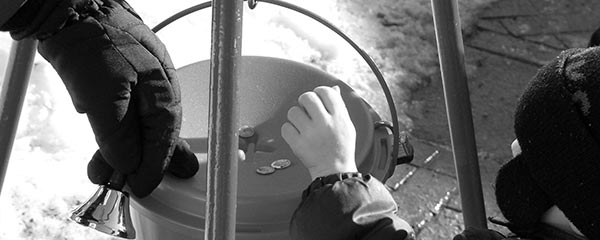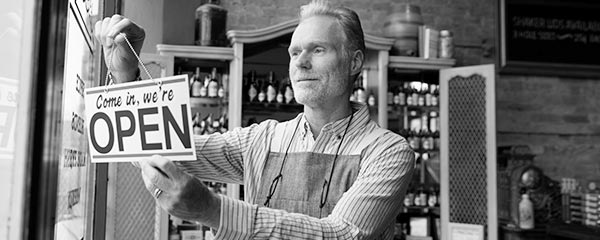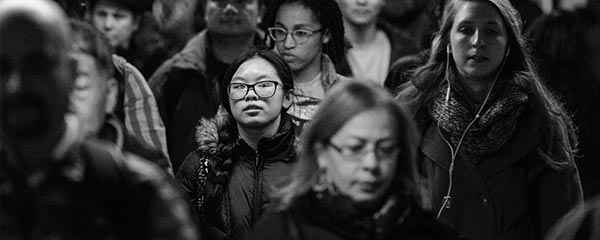Story Highlights
- Gallup's Economic Confidence Index is at +40
- Mentions of economic issues as greatest U.S. problem hit a new low of 10%
- About seven in 10 say it is a good time to find a quality job
WASHINGTON, D.C. -- Americans' confidence in the U.S. economy is higher than at any point in about two decades. The latest figure from Gallup's Economic Confidence Index is +40, the highest reading recorded since +44 in October 2000.
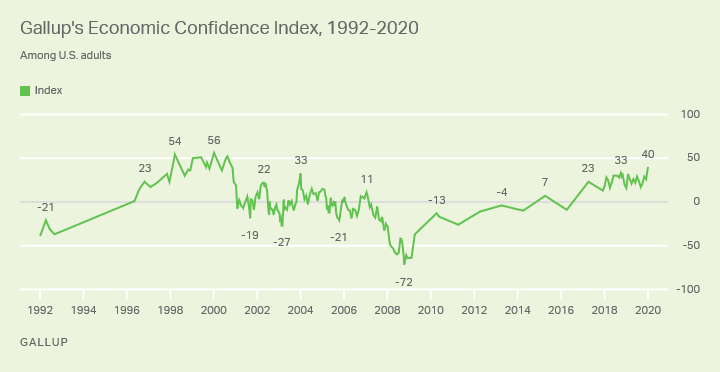
Americans' buoyant confidence in the economy in Gallup's latest poll, conducted Jan. 2-15, likely reflects the U.S. unemployment rate's continued stay at a 50-year low. Meanwhile, the Dow Jones Industrial Average continues to reach record highs -- and flirts with reaching the 30,000 marker.
Gallup's Economic Confidence Index is the average of two components: Americans' ratings of current economic conditions and their views on whether the economy is getting better or getting worse. The index has a theoretical maximum of +100, achieved if all Americans believe the economy is excellent or good and getting better. The theoretical minimum is -100, if all Americans say the economy is poor and getting worse.
The current conditions component score of +54 is the result of 62% of Americans saying the economy is "excellent" or "good" and 8% describing it as "poor." Meanwhile, the economic outlook component score of +26 is the result of 59% saying the economy is "getting better" and 33% saying it is "getting worse."
Gallup's tracking of economic confidence over the past 28 years has recorded index readings at or above the +40 mark in just nine other measurements, all between 1998 and 2000 -- with the highest level recorded in January 2000, at +56, after a then-record high for the Dow. The latest reading of +40 is the only time the index has reached that level since 2000. With the exception of a few notable gains and losses, the years of 2001 to 2006 reflected generally neutral confidence in the economy, as the index yo-yoed between positive and negative territory. In 2007, economic confidence turned decidedly negative, with the index generating subzero readings for eight straight years during the bursting of the housing bubble, Great Recession, financial collapse and slow recovery. The index gradually recovered in the years that followed, finally registering a positive figure again in 2015. Since 2017, the index has ranged between +13 and +33, until the latest figure.
Mentions of Economic Issues as Greatest U.S. Problem at a Record Low
Another indicator of Americans' eased concerns about the economy comes from Gallup's open-ended measure of the greatest problem facing the U.S. For five-and-a-half years, between March 2008 and September 2013, large majorities of Americans named the economy -- or some issue related to it, such as unemployment, taxes or federal debt -- as the most important problem facing the country. This included a high of 86% naming some economic issue in February 2009.
As the U.S. economy continued to improve between 2014 and today, Americans became less likely to name economic issues as the country's greatest problem. The latest reading of 10% is, by one percentage point, the lowest Gallup has found since it began compiling mentions of economic issues in 2001.
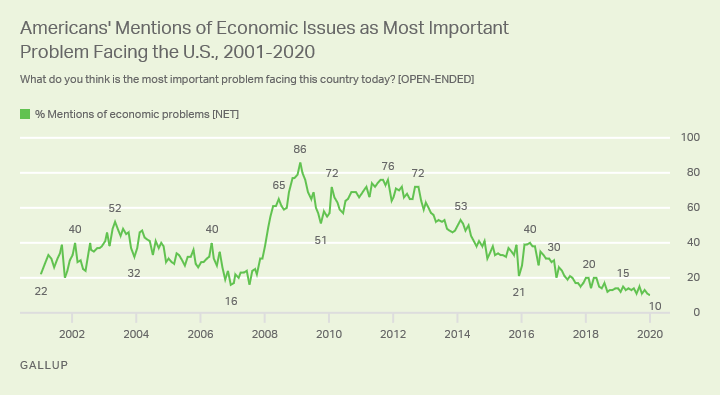
About Seven in 10 Say It's a Good Time to Find a Quality Job
With the unemployment rate holding at its 50-year low, 68% of Americans say it's a good time to find a quality job in the U.S. This is on par with the 62% to 71% recorded over the past two years but is on the high end of Gallup's full trend since 2001.
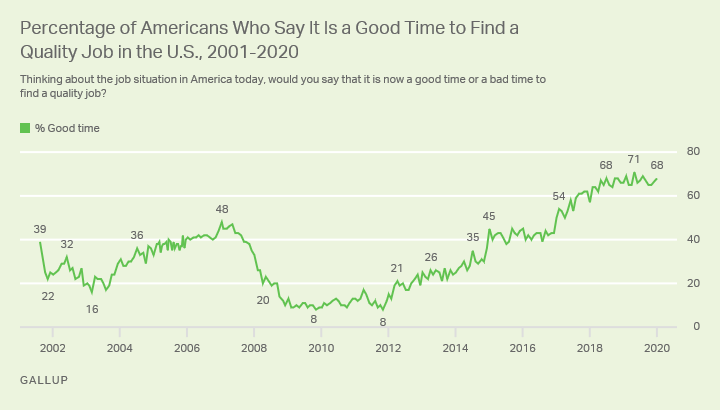
Bottom Line
Rarely in the years that Gallup has tracked public ratings of the economy, since the early 1990s, have Americans had higher confidence in the economy than they do now. Nearly six in 10 describe the economy's current state positively, and a similar percentage say it's getting better.
This greater confidence could serve as a boost to the reelection prospects of President Donald Trump, whose initial election coincided with an upward turn for the U.S. economy. It's one of the top issues for voters, but to a lesser degree than has been the case in the recent past.
Gallup's analysis on election indicators, including the effect of U.S. economic confidence on an incumbent's prospects of reelection, will be published next week.
View complete question responses and trends (PDF download).
Learn more about public opinion metrics that matter for the 2020 presidential election at Gallup's 2020 Presidential Election Center.
Learn more about how the Gallup Poll Social Series works.


